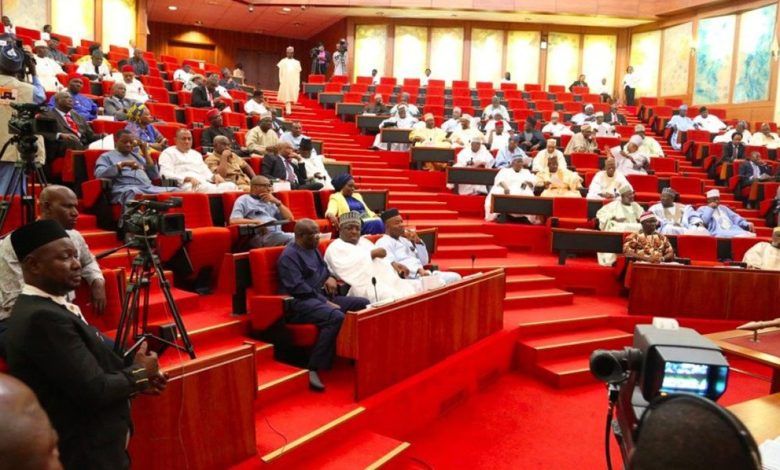
The Nigerian Senate has amended a bill originally proposed by the House of Representatives aimed at prohibiting the exportation of maize, introducing new provisions that include a minimum one-year jail term for anyone convicted of exporting unprocessed maize in large quantities.
The bill, which was passed after a voice vote by the majority of senators, seeks to address the ongoing food crisis in Nigeria by banning the export of maize and its derivatives in commercial quantities.
After detailed deliberation in the Committee of the Whole, the Senate approved the revised bill, which stipulates that anyone caught exporting or facilitating the export of unprocessed maize whether fresh, dried, or in grains or cobs in quantities of at least one metric ton, will be considered in violation of the law.
The revised provision also imposes penalties for Customs officers or any other individual who aids or conspires to export maize unlawfully. Those found guilty could face either a fine equivalent to the value of the exported goods or a one-year prison sentence, or both. The Federal High Court will have jurisdiction over offenses committed under this bill.
Senate Leader Opeyemi Bamidele, who led the debate on the bill, emphasized that the primary aim was to protect Nigeria’s maize supply amid the growing food crisis. He urged his colleagues to support the bill, which had already passed through the necessary legislative stages in the House of Representatives.
However, the bill faced a key amendment from Senator Garba Maidoki of Kebbi South, who proposed removing maize derivatives such as corn flour, cornmeal, and cornstarch from the export ban.
Maidoki argued that excluding these products would be more beneficial for farmers, ensuring fairness and supporting local agriculture. His proposal was seconded by Senator Aminu Abbas of Adamawa Central.
The Deputy Senate President, Barau Jibrin, who was presiding over the session, approved the amendment, citing that allowing the export of maize derivatives could stimulate job creation in Nigeria’s agricultural value chain. He also added that the bill, as amended, would provide more opportunities for Nigerians involved in the maize sector.
With the amendments now made, the two chambers of the National Assembly will form a conference committee to resolve the differences between the Senate and House versions of the bill. Once finalized, the bill will be sent to President Bola Tinubu for assent.





